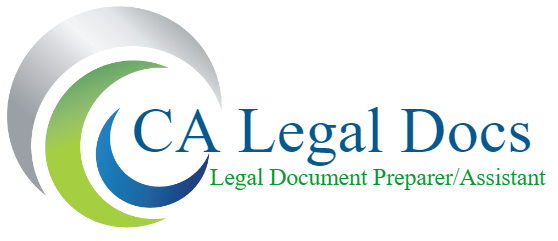Your Debt after Death: Creditor Claims in Probate
Debt does not die with you. Make provisions now so you don’t leave your family with a pile of bills and unanswered questions. Your Debt after Death: Creditor Claims in Probate.
Most Americans have debt. However, most people don’t like talking about what will happen to their debt after they die. Granted, after you pass away, your debts won’t be your problem anymore. But they may become someone else’s problem.
Despite good intentions, many people do leave behind a pile of bills and unanswered questions when they die. And, of course, after a loved one dies, the last thing any grieving family wants is a phone call from a creditor or a stack of unpaid bills demanding the family to pay a loved one’s debts.
What Exactly Happens to Your Debt after Your Death? And What Happens If No One Can Pay Your Debts?
Well, it depends.
When you die, your assets pass to your estate. Generally, debts outlive you. If there is no money or property left when you die, then the debt will not be paid. Your relatives do not have to pay off your debts unless they have provided some form of personal guarantee for those debts or if they are named in the agreement.
Ultimately, state law will affect what will happen to your debts after you die. If the debt is in your name alone, it becomes your estate’s responsibility to pay the debt when you die.
The type of debt, whether there were any co-signers, and how you owned the debt will also play important factors.
Types of debt that people leave behind include, but are not limited to, medical debt, student loans, taxes, credit card debt, auto loans, mortgages, and business debt.
Sadly, in most states, creditors receive priority before your heirs. That means your debt may reduce the inheritance that remains for your heirs. Most people are so focused on leaving behind their assets that they forget about their liabilities. After estate debts are paid, there may not be much left for your heirs.
Solvent vs. Insolvent Estate
Your estate is insolvent if your assets do not cover your funeral, administration expenses, and your debts and liabilities.
A solvent estate is one where there are enough assets to pay the debts and the funeral and administration expenses. If your estate is solvent, then your funeral expenses and your debts must still be paid first.
How Is the Debt Distributed?
The legal process of distributing your assets after you die is called probate. The probate process serves two main purposes: (1) the transfer of the estate assets to the beneficiaries and (2) the orderly payment of claims held by creditors against the estate.
There are several types of probates. There are probates for small estates and probates for larger estates. For larger estates, a personal representative or an executor will need to be appointed by a court. The personal representative is in charge of ensuring everything is taken care of. They administer the estate and appear before the court, if necessary.
If you have a will, your will should name your personal representative. If there is no will, then the probate court will decide who will serve as a personal representative. Typically, state law will dictate who is qualified to serve as a personal representative, and it will outline the personal representative’s responsibilities. In my home state of Florida, you cannot serve as a personal representative if you have been convicted of a felony, even if you are named to serve in someone’s will.
It is the duty of the personal representative to oversee the payment of creditor claims. Personal representatives must engage in a diligent search for creditors of the decedent; they have a duty of notifying known and reasonably ascertainable creditors and unknown creditors and paying or objecting to creditor claims.
Can a Creditor Talk to a Relative about a Deceased Person’s Debt?
No. There are laws in place to protect family members from debt collectors who use unfair or deceptive practices to try to collect a debt.
Under the Fair Debt Collection Practices Act (FDCPA), collectors can contact and discuss outstanding debts with the deceased person’s spouse, parent (if the deceased was a minor child), or personal representative/executor. Debt collectors may not discuss the debts of a deceased person with anyone else.
Which Type of Debts Are Inheritable?
For better or for worse, any co-signed bills or loans are inherited by the survivor. If you outlive the other person, co-signing makes you liable for the remainder of the debt.
Further, people in community property states (Arizona, California, Idaho, Louisiana, Nevada, New Mexico, Washington, and Wisconsin) need to take special precautions. Surviving spouses in these states may be legally responsible for any debt the decedent took on during the marriage.
Can Items Be Taken to Pay the Debt?
Probably. State law varies, but creditors may be able to force the sale of real estate, vehicles, antiques, family heirlooms, and other items to pay the debt.
Is There Anything That Can Be Protected from Creditor Claims?
Maybe. Again, state laws vary, but, generally, there are certain assets that are barred or exempt from creditor claims. For instance, in Florida, if a home is protected by the homestead exemption, it is possible to protect it from creditor claims and pass it to your heirs.
How Do Creditors File a Claim in Probate?
In order to regain any debt, a creditor must file a creditor’s claim during the probate proceedings or risk other creditors and beneficiaries gaining all the assets.
Filing a proof of claim is a time-sensitive matter. State law provides the specific length of time for creditors to file a claim. Often, there will be multiple creditors with debts owed by the debtor. Only the creditors who have filed a claim within the appropriate time and proved their debts will receive anything from the estate proceedings.
Pro tip: Pay attention to the deadline. If creditors fail to file their claim within the deadline, their ability to file their claim is barred. Depending on the case, the creditor may dispute whether they received notice of the probate proceedings. This could lead to prolonged litigation.
What Happens to Mortgage Debt?
If you purchased a home with someone else, such as a spouse or a family member, what happens to the debt is straightforward. The surviving borrower is responsible.
If there is no co-signer, then no one has an obligation to take the debt. However, that doesn’t mean your family can take a home free and clear if there is a mortgage. If family members want to keep the home, they will have to assume responsibility for the loan. Otherwise, they will need to sell the home and pay off the mortgage.
If no one wants to take the mortgage after you die, the bank can foreclose on the property. One way or another, the bank will either get the mortgage paid off or will take the property.
What If the Mortgage Is a Reverse Mortgage?
A reverse mortgage is a bit more complicated. The reverse mortgage must be repaid when the last surviving borrower dies. The loan is usually repaid by selling the house. This can mean that the property will be lost to the surviving family that thought it might serve as an inheritance for them.
What Happens to Credit Card Debt?
Credit card debt, bank overdrafts, and personal loans are known as unsecured debts. Credit card debt is lower on the totem pole during a probate. Repayment of unsecured debts must wait until other priority debts are paid.
Unless, of course, there is a co-owner on the account with you. If there are co-owners, the debt becomes their responsibility to pay.
What Happens to Time-Share Contracts?
Those with time-shares should review their contracts carefully. In most time-share agreements, there is a “perpetuity” clause. This means the obligation to pay the time-share yearly maintenance fee exists in perpetuity. Quite possibly, the requirement to pay the maintenance fees may pass on to your heirs. Although the beneficiaries can refuse the time-share (so long as they are not on the deed), this does not prohibit the time-share company from filing any claims in a pending probate.
What Happens to Student Loan Debt?
The rules on student loans depend on whether they are federal loans or private loans. If you have federal student loans, those are discharged when you die.
You are not so lucky if you have private loans. If your private loan has a co-signer, that co-signer is responsible for the remainder. Private lenders have varying policies about what happens to this debt after death.
What Happens to Car Loan Debt?
It depends. If there is a co-borrower, the co-borrower is responsible for the debt.
But, if there is no co-borrower, and if no one in your family wants the vehicle, then the lender can repossess it. If someone wants to keep the car, they can either pay off the loan or they can keep the car by continuing to pay what is owed on the loan.
What Happens to Medical Debt?
Medical debt does not go away when you die. If it is a small amount, it is likely the provider will decide the bill is uncollectible and close the account. Otherwise, it is likely the provider will file a creditor claim in the probate.
Can My Personal Representative Object to a Claim?
In some instances, yes. If it is not a valid claim, if the amount is incorrect, if it was not filed properly, or if the deadline to file a claim has passed, the personal representative can object to the claim.
Consider Life Insurance as a Helpful Tool to Pay Off Debt
If you are the breadwinner of the family, losing you and your income is catastrophic for a family. Even if your family isn’t responsible for your debt, it is painful and traumatic to have a loved one’s estate and everything he or she left behind taken away by unpaid creditors.
If you have significant debt and don’t feel you can get out of it in your lifetime but want your heirs to receive an inheritance, consider purchasing a life insurance policy to help. Life insurance can ensure your heirs receive something when you die, no matter how much debt you have.
There are numerous policies available on the market with varying rates. Depending on whether you qualify, receiving a life insurance payout can be invaluable for a grieving family that has nothing but bills after a loved one has passed away.
Life insurance could essentially act as a shield between your family and a creditor to ensure your family has enough to get by should something happen to you. For instance, people get life insurance so that their family will have enough money to pay off crucial debts, such as a mortgage, and have funds for things such as paying for college, paying the bills, and buying food.
Other tools are available as well. For instance, you can add a transfer-on-death beneficiary designation to your account. This will keep the financial account out of probate. It will transfer the asset directly to the beneficiary and reduce the impact of debt on your estate.
Take Action Now
The best thing you can do is take action today. In addition to working on repaying the debt, consider speaking to a qualified professional to learn the best techniques to help you in your situation. Often, debt does not die with you, so make the provisions ahead of time to handle debt after death.
Thank you to American Bar for publishing, if you wish to read more: https://www.americanbar.org/groups/gpsolo/publications/gp_solo/2022/november-december/your-debt-after-death-creditor-claims-probate/
**This information should be considered GENERAL INFORMATION ONLY and is not a substitute for the advice of an attorney **
CALL CA LEGAL DOCS TODAY AND LET US SEE HOW WE CAN HELP!
SERVING ALL CALIFORNIA COUNTIES!



